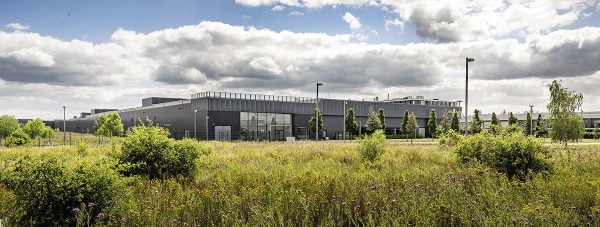From pv magazine Germany
Swiss heterojunction module manufacturer Meyer Burger has concluded wafer supply contracts with several manufacturers and has assured that suppliers will provide wafers made of polysilicon coming from European manufacturer Wacker Chemie.
Meyer Burger needs the wafers for the production of its heterojunction solar cells and solar modules. The company plans to start production at the Bitterfeld-Wolfen and Freiberg factories in Germany this quarter. The facilities will initially have an annual capacity of 400 MW each, that will be expanded to 5 GW by 2026.
By using silicon from Wacker Chemie, Meyer Burger claims that it is meeting the high footprint requirements in the French photovoltaic market, among other things. “By disclosing the supply chain, we are underlining our high demands on the sustainability of our products,” said Gunter Erfurt, CEO of Meyer Burger.
The photovoltaic company claims it wants to produce not only the best but also the cleanest solar modules, whereby not only will the raw materials play a role, but also high ecological and social production standards. “Our new patented technology allows the use of particularly thin wafers that can only be produced with high-quality polysilicon,” continued Erfurt.
Meyer Burger plans to officially present its heterojunction solar modules, with Smartwire technology, on April 27. The delivery of the products should then, probably, begin in the summer. The company is bringing important parts of the photovoltaic supply chain back to Europe with the construction of its production facilities. “Our goal is to source as many of the components of our product as possible in Europe,” concluded Erfurt.
This content is protected by copyright and may not be reused. If you want to cooperate with us and would like to reuse some of our content, please contact: editors@pv-magazine.com.




1 comment
By submitting this form you agree to pv magazine using your data for the purposes of publishing your comment.
Your personal data will only be disclosed or otherwise transmitted to third parties for the purposes of spam filtering or if this is necessary for technical maintenance of the website. Any other transfer to third parties will not take place unless this is justified on the basis of applicable data protection regulations or if pv magazine is legally obliged to do so.
You may revoke this consent at any time with effect for the future, in which case your personal data will be deleted immediately. Otherwise, your data will be deleted if pv magazine has processed your request or the purpose of data storage is fulfilled.
Further information on data privacy can be found in our Data Protection Policy.